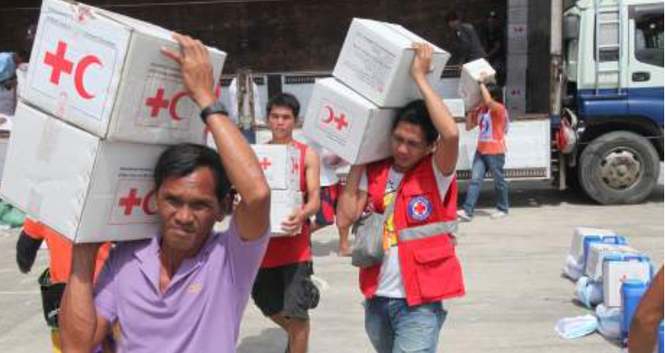
During the consultation and piloting of the Model Act for the Facilitation and Regulation of International Disaster Relief and Initial Recovery Assistance (Model Act), some stakeholders expressed that an emergency decree would be better-suited to some states and contexts. The IFRC and the UN Office for the Coordination of Humanitarian Affairs (OCHA) are therefore collaborating to develop this additional tool for situations where a clear legal framework is not in place before the onset of a large-scale disaster, or where the adoption of more comprehensive legislation is not practicable.
The draft “Model Emergency Decree for the Facilitation and Regulation of International Disaster Relief and Initial Recovery Assistance” is intended as a reference tool for voluntary use by states. In the wake of a disaster and following a declaration of emergency, the model emergency decree could serve as a reference for drafting a subsequent decree based on the special powers of the state of emergency, to provide specific rules for international assistance.
The draft model emergency decree, like the Model Act, addresses some of the most common legal challenges and regulatory issues in international assistance – including issues relating to the entry and operation of assisting international actors, and also to the coordination of their assistance. Consistent with the Guidelines for the Domestic Facilitation and Regulation of International Disaster Relief and Initial Recovery Assistance (IDRL Guidelines), it seeks to limit delays, restrictions and costs while ensuring adequate oversight and coordination. While comprehensive legislation is the ideal, this is not always possible and this tool is offered as a means of addressing some of the most common issues – at least on a temporary basis.
The project partners, the IFRC and OCHA, intend to continue consultation on this draft with interested stakeholders in order to produce a final version by the end of 2013.
Expert assistance for the development of the draft model emergency decree was contributed by a number of institutions, including legal research and drafting support from Allen & Overy LLP, Baker & McKenzie, CMS Cameron McKenna LLP, Microsoft Corporation, and the World Customs Organization.
The draft model decree is available in a consultation version, and comments or suggestions are invited by email to disaster.law@ifrc.org no later than 31 July 2013.